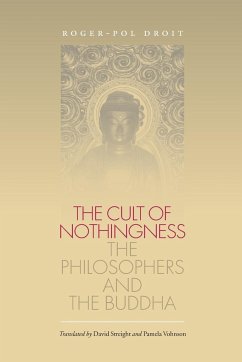The common Western understanding of Buddhism today envisions this major world religion as one of compassion and tolerance. But as Roger-Pol Droit reveals, this view bears little resemblance to one broadly held in the nineteenth-century European philosophical imagination that saw Buddhism as a religion of annihilation calling for the destruction of the self. Originally published in France in 1997, this book traces the history of the Western discovery of Buddhism. Droit shows that such major philosophers as Schopenhauer, Nietzsche, Hegel, Cousin, and Renan imagined Buddhism as a religion that was, as Nietzsche put it, a "negation of the world." In fact, says Droit, such portrayals were more a reflection of what was happening in Europe at the time--when the collapse of traditional European hierarchies and values, the specter of atheism, and the rise of racism and social revolts were shaking European societies--than an accurate description of Buddhist thought. Droit also reflects on how this history continues to echo in contemporary Western understandings of Buddhism. The book includes a comprehensive bibliography of books on Buddhism published in the West between 1638 and 1890. oji. Photograph by Richard M. Jaffe.-->
Bitte wählen Sie Ihr Anliegen aus.
Rechnungen
Retourenschein anfordern
Bestellstatus
Storno








